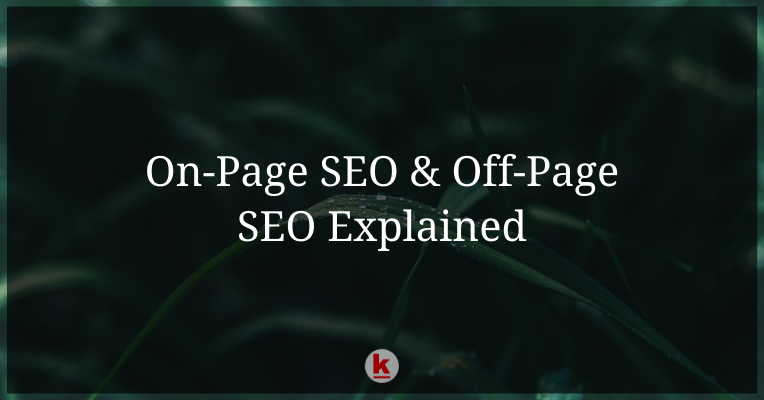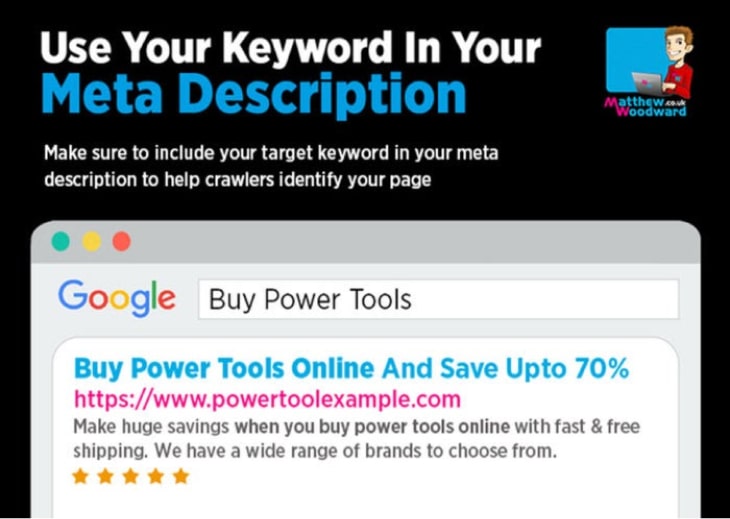
On-Page SEO & Off-Page SEO Explained
I love on-page SEO for a couple of reasons:
- It’s free to do
- Super easy to implement
- You’re in total control
But if it’s free to do and easy to execute, why aren’t more people using it correctly?
In all honesty, I have no idea why. But the fact that you’re here shows that you want to learn more about it.
So below, I’m going to explain everything you need to know about on-page SEO. I’m also going to clear up some confusion between on-page and off-page SEO. But more importantly, I’m going to show you the most important SEO factors.
Sound good? Let’s get started…
What Is On-Page SEO?
On-page SEO is all about making your users and Google’s experience as easy as possible. What this means is making your website and the code within it look clean.
By implementing on-page SEO, both parties can quickly identify the content that is valuable to them. By doing that, you’ll ensure that Google will give you a boost in rankings, which will drive more traffic to your site.
Many people mistake on-page SEO and off-page SEO, so in the next section, I’m going to clarify any confusion.
On-Page SEO Vs Off-Page SEO
Like I mentioned earlier, on-page SEO is anything on the page that you have direct control over. This could mean looking into your site speed, internal links, and many more factors, but I’ll go into more detail later.
With off-page SEO, you have slightly less control over what happens. But what it really involves is things like link building.
The most common mistake most website owners make is jumping straight into off-page SEO thinking it will help their rankings.
This is a HUGE mistake!
What’s the point of sending people to a crappy site that’s not ready for Google or your users?
It’s a waste of your time and the users, in the end, your website will suffer for it. Not only that, but it’s a lot harder to score links when your website isn’t ready.
So, what do you need to do to make your site ready?
On-Page SEO Factors
In this section, we’re going to focus on ten on-page SEO factors that will improve your search rankings. And like I said before, you’re in total control and it’s free to implement:
Optimized Image Alt Tags
Image crawlers can struggle to identify specific images, which is why we need to give them a fighting chance. Using an alt tag will allow Google crawlers to interpret the picture quickly and easily.
To do this, you’ll need to provide a descriptive piece of text for each picture. The text should include a target keyword to add some relevance to your page. Make sure you don’t stuff each page with them, instead sprinkle them lightly to get maximum effects.
Mobile Ready
This has to be one of the most critical factors on the list. In 2015 Google started to penalize sites that weren’t responsive on mobile phones. This made it very hard to rank your page unless you made it mobile responsive.

This was further set in stone in 2018 when Google introduced the mobile-first indexing update. This meant Google would crawl the mobile version of your site before the desktop version.
Speed It Up
Google announced that your website speed is now an official ranking factor. A slow website can cost you both rankings and money for two reasons:
- Google doesn’t like a slow site
- Nor do your users
The great thing about this factor is, it’s straightforward to fix. Here are some tips for improving your site speed:
- Use GTMetrix
- Install caching plugins
- Optimize images
- Lazyload images
- Use Cloudflare
Using the tools that are available to you, you can significantly increase your site speed in a few hours.
Start You Title With A Keyword
This helps Google and your readers quickly understand exactly what the page is about. And this is the reason it’s one of the most important factors to consider.
Ranking pages is about making Google like you, and little things like having the keyword at the start of your title can help. Google knows what your page is about in a couple of milliseconds.
Meta Description With A Target Keyword
Placing your target keyword at the start of your title tag isn’t the only important spot. Google takes into account what’s in your meta description as well.

To ensure you have the best possible chance of ranking, you should include your primary keyword. You also need to make sure the meta description gives an honest review of what the page is about.
If you do these two things, you’ll see a slight ranking bonus.
Links Links Links
It’s something that is underused and needs close attention paying to it if you’re looking for a ranking boost.
Internals links are links that point from one of your pages to another. Internal linking does three things:
- Shares the link juice across your pages
- Adds extra value for your readers
- Makes it easier for Google crawlers to index
Make sure you use exact keywords as the anchor text.
How Longs Too Long?
After some hours of research, you’ll notice that long-form content seems to rank better than short-form. The reason behind this is Google finds it to have more information, thus more relevant for the users.
The average length seems to be around 2,000 words, but this does vary between niches, so it’s a good idea to keep your eyes open and check on the top ranking sites in your niche for your optimum word count.
Keyword Arrangements
If you asked ten different people to search for a flight to Thailand, do you think they would all search for the same thing?
I didn’t think so. All of them would search for something slightly different. Well, in theory anyway. This is the reason why mixing up your keywords is so important.
Lower That Bounce Rate
Google claims that your bounce rate doesn’t affect your rankings. But in an article by Moz, they feel it might be an indirect impact on rankings. You can check out the full article here to see what you think.
Either way, if you’re looking to improve your bounce rate you can try these two things:
- Create great content
- Use SEO copywriting skills
- Apply internal links
Rounding Up
The most critical piece of information I want to leave you with is don’t start your off-page SEO unless your on-page work is complete. Remember, on-page SEO is within your control, it’s free to implement, and most of the time, it’s straightforward to execute.
There’s one more thing I want to talk about, and that’s Surfer SEO, this excellent tool can help you with your on-page and off-page SEO. If you don’t believe me, check out this Surfer SEO review.